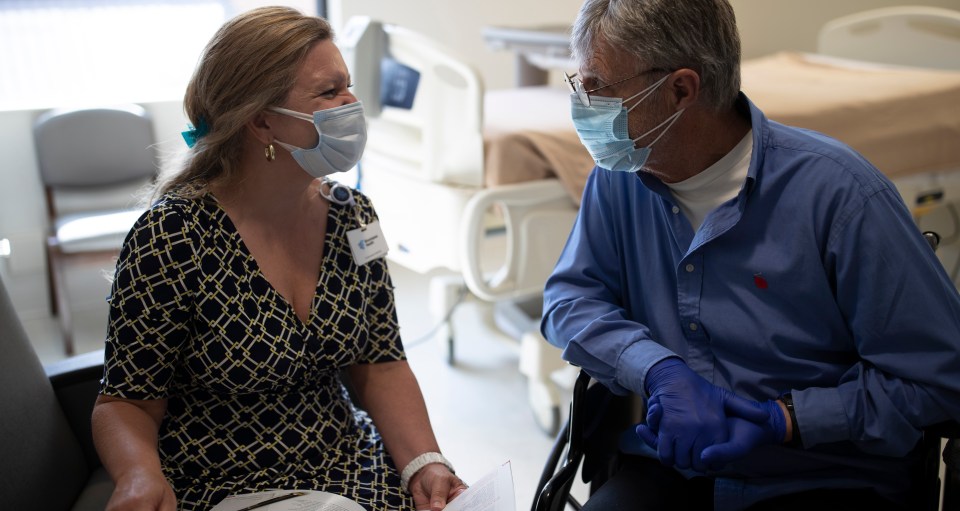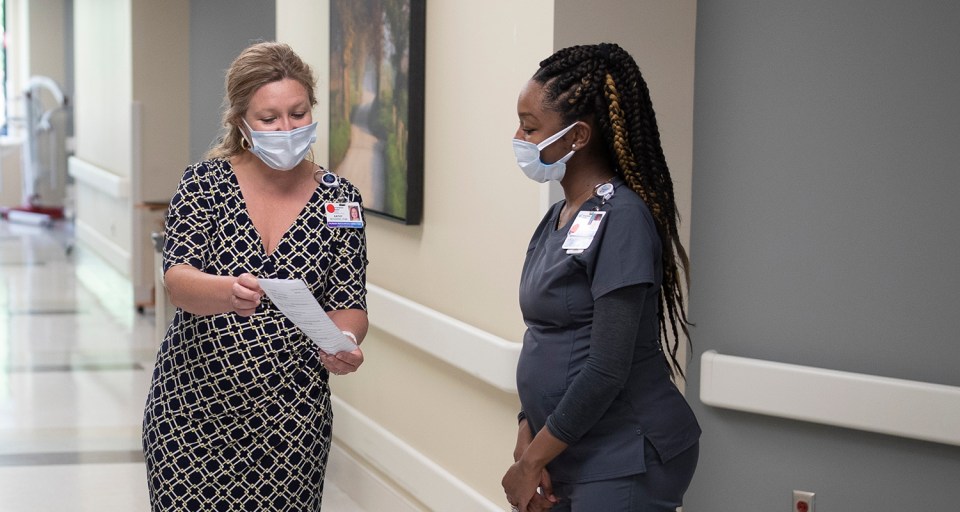
of case management
Case managers make a difference in patients’ and caregivers’ lives every day, whether directly or behind the scenes. Case managers play an important role in Encompass Health hospitals by serving as patient and family advocates and acting as the liaison between the hospital, the providers, the payers and the community.
Swift and frequent changes in the healthcare environment and discharge planning make the role of the case manager a challenging one, and it’s only been further complicated by the impacts of COVID-19. Still, this rewarding field is navigated by case managers with care and compassion at every turn. Encompass Health’s National Director of Case Management Dina Walker recently shared her insights into the evolving responsibilities and proven adaptability of case managers.
Q: Has the role of a case manager at Encompass Health changed during the COVID-19 pandemic?
Yes! Managing a patient caseload in an inpatient rehabilitation hospital isn’t easy under normal conditions. Encompass Health case managers are accustomed to “managing during a crisis” in the sense that they often have patients who have suffered traumatic events or have challenging family situations, but when the “crisis” also includes a global pandemic, it adds layers of complexity to the already demanding role.
Q: What challenges are case managers facing because of the pandemic, and how are they overcoming them?
The pandemic has brought many challenges to case management, and with those challenges, many opportunities for trying new, inventive ways to meet the needs of patients. First, our case managers had to learn how COVID-19 is spread and how to prevent its transmission. The primary means of controlling the spread are socially-based and rely on a person changing or adopting new behaviors like wearing face coverings, practicing good hand hygiene and self-monitoring symptoms. Case managers have had to expand their coaching skills to help patients and families adopt these new habits.
Social distancing has unfortunately separated many patients from their families at a time when that connection is so vital. It has also made attending appointments with providers after discharge challenging. To bridge these gaps, case managers have had to quickly learn more about remote communication applications and telehealth platforms. In some cases, they’re teaching patients how to use new technology and devices so they can communicate with their loved ones while in the hospital and be prepared to attend telehealth visits after discharge.
Case managers also have to maintain up-to-date knowledge of modifications to Medicare conditions of participation, enacted waivers, changes to payer requirements and process changes made by home health providers and medical equipment suppliers.
Q: Has COVID-19 impacted the discharge process?
Discharging patients back to their home and community has always been Encompass Health’s focus. During the pandemic, it has become even more of a priority because it reduces the risk of further COVID-19 transmission. The pandemic has increased the need to tailor discharge plans to the individual patient and their unique situation, keeping in mind any changes to their environment or support system as a result of the pandemic, like the closure of schools or certain businesses.
Q: Have there been any other unforeseen obstacles?
Well, we know other industries have also been impacted by the pandemic, such as transportation, food supply chains, financial institutions, religious centers—the list goes on. Case managers now have to research unique ways to meet patients’ needs related to these types of services.
Case managers are in closer communication with state agencies now so they can try to resolve transition issues for special populations, like homeless patients with limited or no access to shelters, those in need of guardianships, or patients awaiting Medicaid assistance.
Q: Are you seeing case managers rise to the occasion?
Certainly. In many ways, the pandemic has required case managers to become better communicators and improve their ability to collaborate and form partnerships with other healthcare entities and community services. These are just a few of the dynamics that are making the role of the case manager more important than ever. There should be no doubt that case managers are the key to coordinated care in our rehabilitation hospitals and across the continuum of care. We’re extremely proud of our Encompass Health case managers for the hard work they do. By overcoming challenges they have never faced before, they are setting the new standard for case management practice.
Q: What words of encouragement can you offer case managers?
We are in uncharted territory and things are changing rapidly. It’s easy to get overwhelmed and feel like things are out of your control. Try to focus on what you can directly impact. You don’t have to have all the answers today. Be flexible and forgiving of yourself and others. Ask questions and involve others in the decision making process. Continue to work together collaboratively. We are stronger that way!
The content of this site is for informational purposes only and should not be taken as professional medical advice. Always seek the advice of your physician or other qualified healthcare provider with any questions you may have regarding any medical conditions or treatments.



